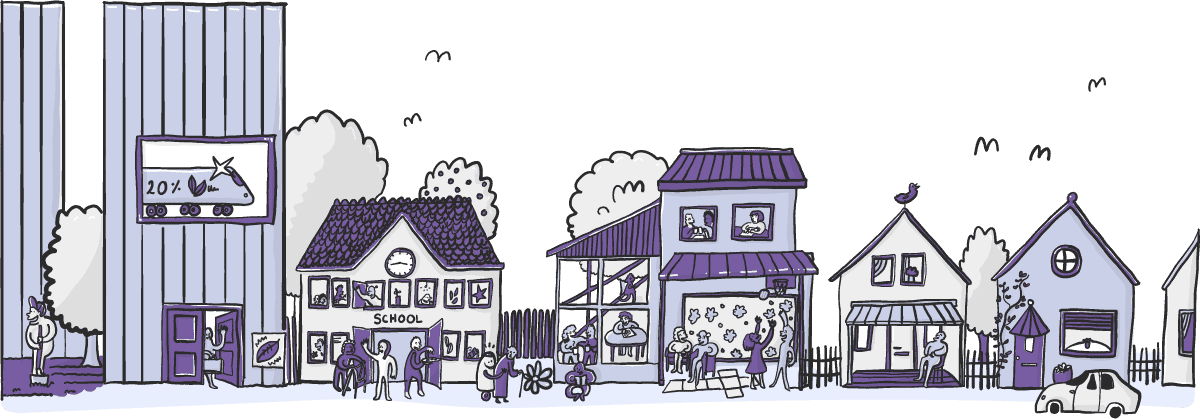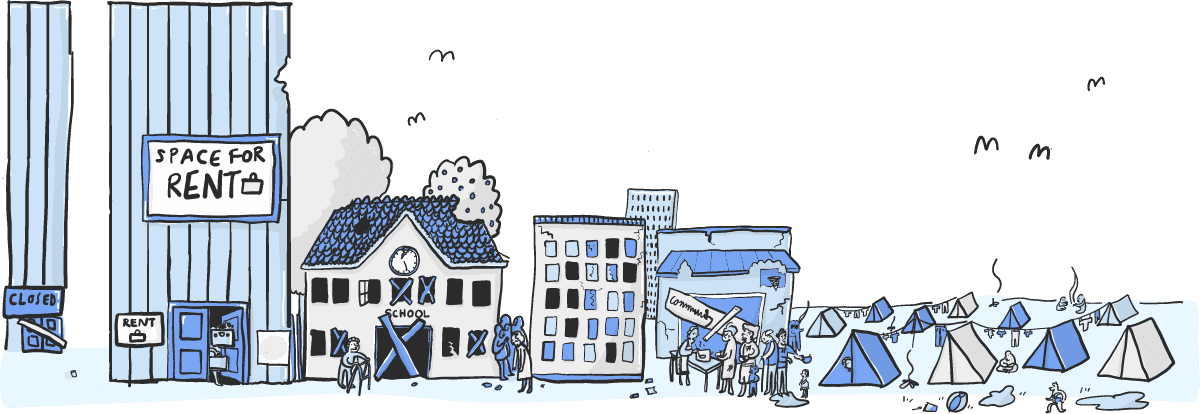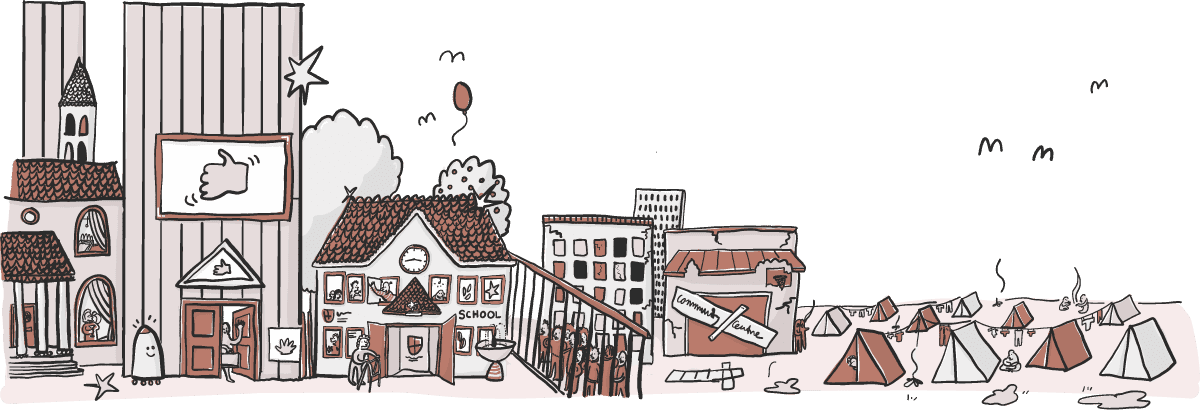The Scenario toolkit
Download a copy of the Scenario game to print yourself, instructions are included.
Order a print version of the Scenario game and other key resources in a sturdy metal tin. Cost is £80.00.
There are several ways to engage with this work. Here's a quick guide to the different ways it can support you and your organisation.
Download a copy of the Scenario game to print yourself, instructions are included.
Order a print version of the Scenario game and other key resources in a sturdy metal tin. Cost is £80.00.
This free guide accompanies the Staff College Project 2035 materials which can be found at https://staff2035.3rdhorizons.com/
Get your team together over coffee and cake and run a training session with a difference. Get people debating and sharing ideas about the future of Children's Services
Time required: 2 hours
This short workshop is ideal for those wishing simply to come together in a group to discuss the four scenarios: activism, left behind, divided and networked set in 2035. This session can be used by teams and lends itself well to a short workshop over lunch.
Send out the four scenarios in advance of the workshop and invite delegates to read each one. Lay out your venue informally, suitable for a relaxed and open discussion, perhaps as a café.
A copy of the Scenario toolkit game:
The organiser should use the project 2035 Introduction Powerpoint to explain the aim of the workshop is to imagine the future and make the following points very clear:
1. We are going to look at four divergent scenarios for 2035
2. The four scenarios are not predictions but have been written based on research, evidence, views, opinions collected over a six month period. The organiser should introduce the 12 critical uncertainties used to develop the four scenarios.
3. Explain that the point of the session is to explore each scenario and consider which elements we like and dislike and what we might usefully do as a team now to move towards the more favourable elements of the four scenarios.
Note: Participants should not comment on the cards as they are being read out. Wait until all cards have been read and everyone has a general sense of the scenario.
Note: The table scribe should record highlights, including what participants agree upon and disagree upon.
Note: each scribe should take note of the group’s views on flipchart paper
The Staff College offers a range of support packages for your organisation or Partnership to engage purposefully with the Project 2035 materials. Get in touch to discuss and co-design a tailored approach.
Get your team together over coffee and cake and run a learning session with a difference. Get people debating and sharing ideas about the future for children and young people.
Using the Project 2035 materials, explore aspirations for the future, identify what staff see as the key barriers and opportunities when working with children and young people and develop ideas for service improvements. This session includes hard copies of the scenario game, expert facilitation from The Staff College, and access to other useful tools.
Cost: £1,500
Time: half or full day
The Project 2035 materials can be used as a practical strategic tool to support leaders and managers consider service improvements, workforce development and organisational culture. Supported by expert facilitation you will also receive our strategy tool, presentations, desk resources and handouts.
Cost: £1,950
Time: One full day with optional additional
days
The Project 2035 material offers a simple and engaging framework to guide people from all kinds of backgrounds to have their say and help shape services. This session includes expert facilitation from The Staff College, hard copies of the scenario game, our co-production tool and access to other desk resources and handouts.
Cost: £1,950
Time: 5-6 hours with options for add on
sessions
This unique four day development programme will explore the big questions for the future leadership of social services and will build the skills and capabilities needed to respond to these changing demands. The programme includes expert inputs and facilitation and a range of systems leadership tools and resources.
Cost: £1450 per person
Time: 4 day programme including a two day
residential
The Project 2035 offers a practical resource to support those wishing to develop and systems leadership practices to work with complexity and uncertainty. Focussing on developing practical collaborative practices, this session includes expert facilitation from The Staff College, hard copies of the scenario game, our system leadership tool and access to other desk resources and handouts.
Cost: £1950 (one day) or £2950 (2
days)
Time: Two one-day sessions
Using the Project 2035 national scenarios as a backdrop, this session guides participants through a creative and engaging scenario planning process where groups produce their own scenarios based on local drivers-of-change - a useful framework to help plan in the short term. This session includes expert facilitation from The Staff College, our scenario planning tool and access to other useful desk resources and materials.
Cost: £1950 (one day) or £2950 (2
days)
Time: One or two full days




